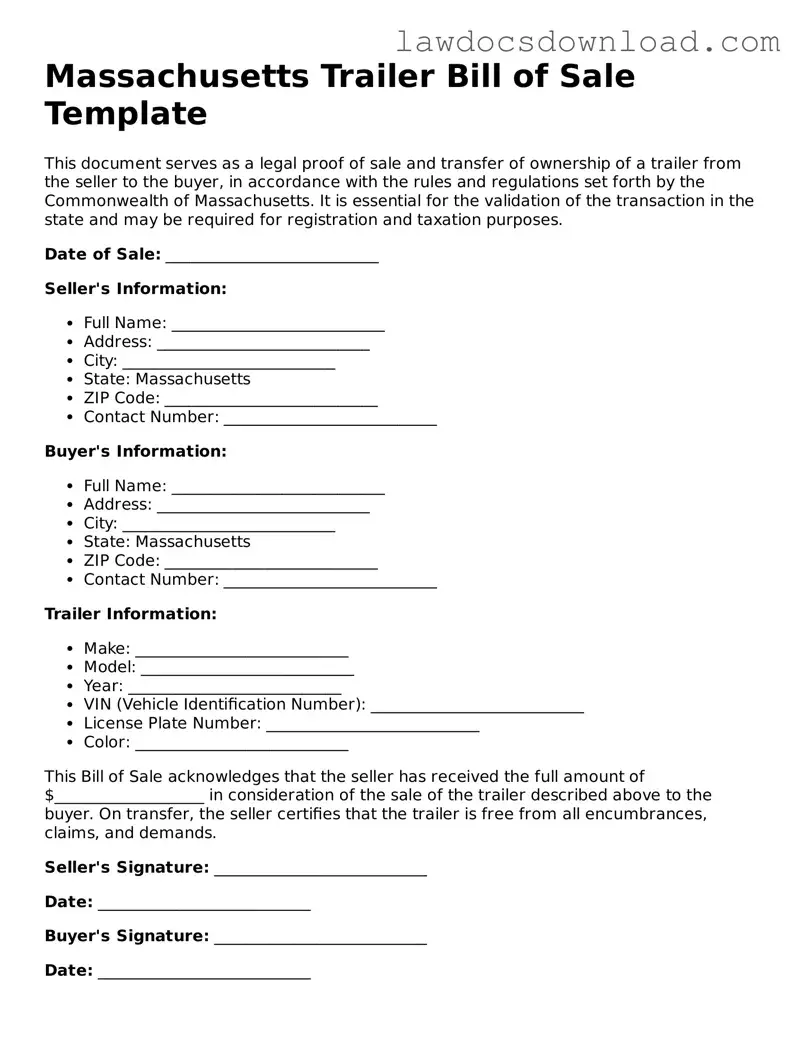The Massachusetts Trailer Bill of Sale is similar to a Vehicle Bill of Sale, as both serve the primary function of recording the sale of personal property and transferring ownership from the seller to the buyer. These documents are crucial during the registration process of the sold item, whether a trailer or a vehicle, with local authorities. They detail the sale's specifics, such as the sale date, purchase price, and identification information of the item sold.
Another document closely related to the Trailer Bill of Sale is a Boat Bill of Sale. Like the Trailer Bill of Sale, the Boat Bill of Sale documents the transaction between a buyer and seller but focuses on boats. Both documents provide proof of purchase and are typically required for registration purposes, ensuring that the details of the transaction are clearly recorded and acknowledged by both parties involved.
Similarly, a Firearm Bill of Sale shares common ground with the Trailer Bill of Sale as they both document the transfer of ownership of a specific item, in this case, a firearm. This document, like its counterparts, includes critical information such as the make, model, serial number of the firearm, and the details of the buyer and seller. It serves as a vital record that can be used for registration or proof of ownership.
The General Bill of Sale is a more versatile document but still shares similarities with the Trailer Bill of Sale. It is used for transactions involving personal property, ranging from electronics to furniture, where it outlines the transaction details, such as the description of the items sold, the sale price, and the parties' information. Although its use is broader, its function in confirming a transaction and transferring ownership is essentially the same.
An Equipment Bill of Sale is also akin to the Trailer Bill of Sale, specifically focusing on the sale of equipment instead of trailers. This document ensures that the specifics of the equipment sale, including identification details, condition, and purchase price, are clearly documented. Its role in the transaction is to legally record the shift in ownership, providing a receipt for the buyer and protection for both parties involved.
Last, the Livestock Bill of Sale is comparable to the Trailer Bill of Sale as they both formalize the sale of specific types of property, in this instance, livestock. This document outlines the details of the sale, including the type and number of animals, ensuring a legal transfer of ownership. Like with trailers, this is particularly important for registration and identification purposes, ensuring that all relevant information is accurately recorded and acknowledged by all involved parties.

